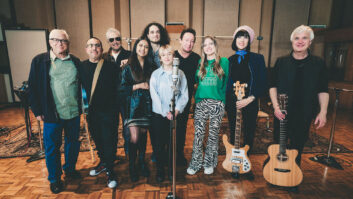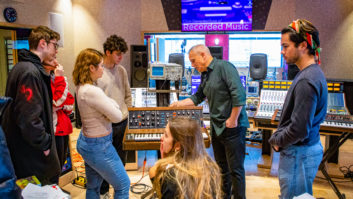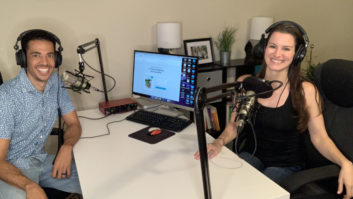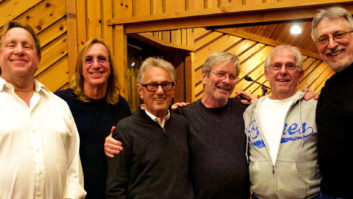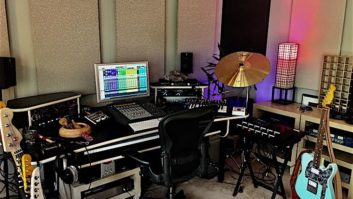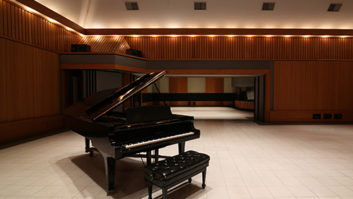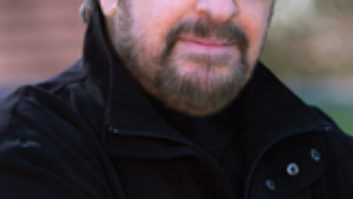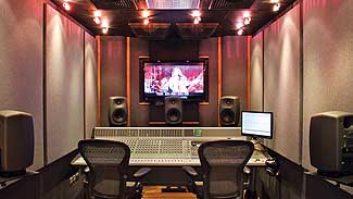CAPE TOWN, SOUTH AFRICA—In August 2013, Wired for Sound, a mobile studio funded by Open Society Initiative for Southern Africa (OSISA), drove around Mozambique, even into the most isolated regions, recording musicians of all ages and experience. The results of that project, a 17-track album entitled Wired for Sound Mozambique, became available on iTunes in June, also spawning a radio documentary, photo essays and video.
The project is a collaboration between two members of Cape Town-based Afro-fusion band Freshlyground, founder Simon Attwell and guitarist Julio Sigauque, who was born in Mozambique, and radio producer Kim Winter. Freshlyground is the band behind Shakira on “Waka Waka (This Time for Africa),” the official song of the 2010 FIFA World Cup.
Simon Atwell spent two months traveling to musicians in isolated regions to record them for Wired for Sound Mozambique. Working with the National Community Radio Forum of Mozambique, the team sought assistance from local radio staff in each province to help them find interesting venues and musicians with whom to work, recording them over a two-month period in five separate regions in the north of the country. The team worked with the local community radio stations to organize interviews with the participating musicians and play the initial field recordings, also relying on their assistance to find local accommodation and provide introductions to the local authorities.

“One of the community radio stations’ biggest challenges remains a clean and uninterrupted power source,” reports Atwell by email. Wired for Sound’s rolling rig is comprised of a Toyota Hilux 4×4 outfitted with a solar panel and loaded with portable recording equipment. The solar panel charges a 115 Ah battery, which is also connected to the vehicle’s alternator, and feeds a 200 W pure sine wave inverter. “This gives very reliable, very clean power,” he says.
“This also gives us the freedom to record anywhere. Plugged into this, I used a MacBook Pro running Logic 9, which was mostly fed by AKG 414 and 214 microphones through a Focusrite Scarlett 18i20. The interface and AKG microphones were sponsored by Marshall Music in Cape Town,” he says.
Many of the tracks feature full productions, overdubbed onto the initial field recordings in hotel rooms, Atwell’s apartment and other locations, according to the availability and location of the musicians, plus some studio time for tracking drums. Additional collaborators include prominent musicians from South Africa and Mozambique, including blues guitarist Albert Frost, classical guitarist Derek Gripper and saxophonist Buddy Wells, as well as members of Freshlyground.
“Julio and I spent quite a bit of time working through the recordings with a few instruments lying around, checking out which lent themselves to additional layering, and what sort of sounds and styles,” says Atwell. He also notes, “There was no real budget for this.”
The tracks were mixed by Dave Langemann, who works out of Digital Forest Studio in Cape Town, and mastered by Tim Lengfeld at TL Mastering in Stellenbosch, South Africa. All of the documentary post production was performed at Atwell’s apartment.
The iTunes release date coincided with Mozambique’s 39th Independence Day celebrations on June 25, 2014. The album spans a variety of genres, from traditional zouk, Marrabenta and Chimurenga to modern rap, rock and jazz, with performances by traditional instrumentalists, contemporary singer-songwriters, MCs, choirs and bands.
One of the principal motives behind the project is to raise sufficient funds, via album revenue and sponsorship, to establish more permanent music production facilities not just in Mozambique but also in Malawi, Wired for Sound’s next destination. “I’ve had commitments from various suppliers for basic studio set-ups to be supplied at manufacturer prices,” reports Atwell.
“We are looking at installing a good-quality, two-channel interface, coupled with two microphones, headphones, software, a laptop and a pair of studio monitors. We will be working with the radio station managers in Mozambique to install these once we’ve raised the capital.”
Malawi, which the team plans to visit in September, will build on Wired for Sound’s pilot program in Mozambique, he continues. “We will again focus on community radio stations as an entry point to the community and a base for the studio. Our focus will shift a little towards installing and training on basic studio setups— hopefully solar-powered—in the radio stations.” The underlying idea is to promote local music and generate content for the community radio stations, says Atwell.
In planning for the next trip, he continues, “We have included hardware in the budget for Malawi, so we will be doing the installation and training on-site whilst recording the artists, leaving them with the basic know-how and gear to continue.” Plus, on this next venture, he says, re:educate, a New York City-based community arts organization, will be on-board facilitating hip-hop collaborations in real time.
Wired for Sound
wiredforsound.co.za
